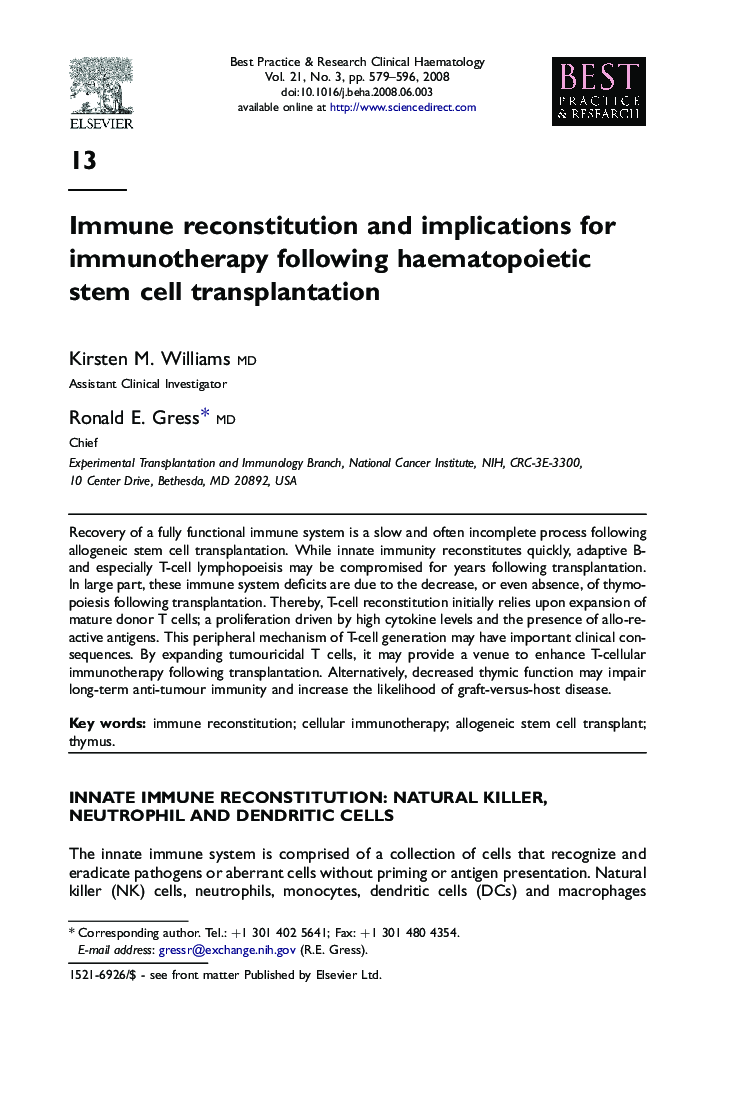| Article ID | Journal | Published Year | Pages | File Type |
|---|---|---|---|---|
| 2100794 | Best Practice & Research Clinical Haematology | 2008 | 18 Pages |
Recovery of a fully functional immune system is a slow and often incomplete process following allogeneic stem cell transplantation. While innate immunity reconstitutes quickly, adaptive B- and especially T-cell lymphopoeisis may be compromised for years following transplantation. In large part, these immune system deficits are due to the decrease, or even absence, of thymopoiesis following transplantation. Thereby, T-cell reconstitution initially relies upon expansion of mature donor T cells; a proliferation driven by high cytokine levels and the presence of allo-reactive antigens. This peripheral mechanism of T-cell generation may have important clinical consequences. By expanding tumouricidal T cells, it may provide a venue to enhance T-cellular immunotherapy following transplantation. Alternatively, decreased thymic function may impair long-term anti-tumour immunity and increase the likelihood of graft-versus-host disease.
